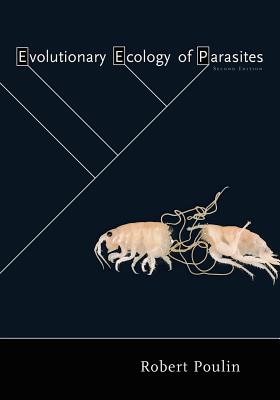Parasites have become a powerful model system for the study of ecology and evolution, with practical applications in disease prevention. This work presents an evolutionary framework for the study of parasite biology, combining theory with empirical examples for a broader understanding of why parasites are as they are and do what they do.
Parasites have evolved independently in numerous animal lineages, and they now make up a considerable proportion of the biodiversity of life. Not only do they impact humans and other animals in fundamental ways, but in recent years they have become a powerful model system for the study of ecology and evolution, with practical applications in disease prevention. Here, in a thoroughly revised and updated edition of his influential earlier work, Robert Poulin provides an evolutionary ecologist''s view of the biology of parasites. He sets forth a comprehensive synthesis of parasite evolutionary ecology, integrating information across scales from the features of individual parasites to the dynamics of parasite populations and the structuring of parasite communities.
Evolutionary Ecology of Parasites presents an evolutionary framework for the study of parasite biology, combining theory with empirical examples for a broader understanding of why parasites are as they are and do what they do. An up-to-date synthesis of the field, the book is an ideal teaching tool for advanced courses on the subject. Pointing toward promising directions and setting a research agenda, it will also be an invaluable reference for researchers who seek to extend our knowledge of parasite ecology and evolution.
Get Evolutionary Ecology of Parasites by at the best price and quality guranteed only at Werezi Africa largest book ecommerce store. The book was published by Princeton University Press and it has pages. Enjoy Shopping Best Offers & Deals on books Online from Werezi - Receive at your doorstep - Fast Delivery - Secure mode of Payment
 Jacket, Women
Jacket, Women
 Woolend Jacket
Woolend Jacket
 Western denim
Western denim
 Mini Dresss
Mini Dresss
 Jacket, Women
Jacket, Women
 Woolend Jacket
Woolend Jacket
 Western denim
Western denim
 Mini Dresss
Mini Dresss
 Jacket, Women
Jacket, Women
 Woolend Jacket
Woolend Jacket
 Western denim
Western denim
 Mini Dresss
Mini Dresss
 Jacket, Women
Jacket, Women
 Woolend Jacket
Woolend Jacket
 Western denim
Western denim
 Mini Dresss
Mini Dresss
 Jacket, Women
Jacket, Women
 Woolend Jacket
Woolend Jacket
 Western denim
Western denim
 Mini Dresss
Mini Dresss






























































